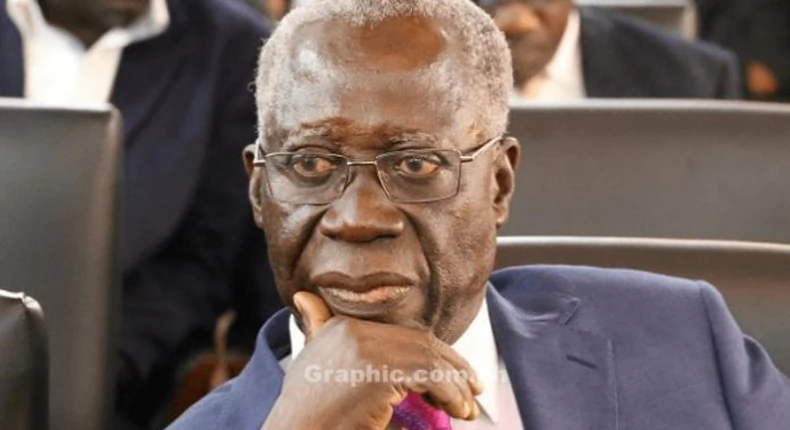He said the Ghanaian economy cannot withstand such a policy decision and it might lead to its collapse.
Published
3 years agoon
By
Joe Pee
Yaw Osafo-Maafo, Special Advisor to the President has said that it is practically impossible for the government to subsidize fuel.
He said the Ghanaian economy cannot withstand such a policy decision and it might lead to its collapse.
Speaking in an interview on Asaase Radio, the former Finance Minister said the citizens have to pay for their fuel.
“There is no way the economy can provide subsidy to fuel,” the former Finance Minister told Asaase Radio’s Beatrice Adu, adding “it’s a commodity we don’t produce, others produce and we buy. And therefore, we should at best buy it at the cost price.”
“The economy cannot and I repeat, cannot stomach [fuel] subsidy. People should pay for it. You see, there are so many vehicles on the road and some of them need not be there. If you can’t afford to drive a 4-wheel drive, then you must not use it. We must now begin to look at situations of economic use of energy,” Osafo-Maafo said.
Mr. Osafo-Maafo’s comments comes off the back of a similar one shared by President Nana Addo Dankwa Akufo-Addo during the 2022 May Day celebrations.
He said the plea to government to remove some of the taxes on fuel will be very difficult to implement because the country gets revenue from there.
Speaking at this year’s May Day celebration in Accra, the President said such an action will significantly affect the government’s revenues.
Osafo-Maafo becomes Senior Presidential Advisor to Akufo-Addo
“Removing taxes on petroleum products will reduce government revenues by some GH¢4 billion. At this time, when we are determined to expand government revenues in order to increase our capacity to finance our own development, can we afford to reduce tax revenues by GH¢4 billion?” he quizzed.
He said the monies raised from taxes such as those on petroleum prices are what is used to pay wages and allowances of workers; hence withdrawing them could affect the payment of salaries.
“Government is currently confronted by very tight financing conditions, in the wake of inadequate domestic revenue mobilisation. Indeed, some of the revenues from these same taxes on petroleum products are what we use to pay some of the salaries of some of the seven hundred thousand (700,000) public sector workers on Government’s payroll.”
Nana Akufo-Addo said despite the government’s decision, it is adopting other measures to mitigate the situation, including stabilising the exchange rate, a key determinant of fuel prices.

























